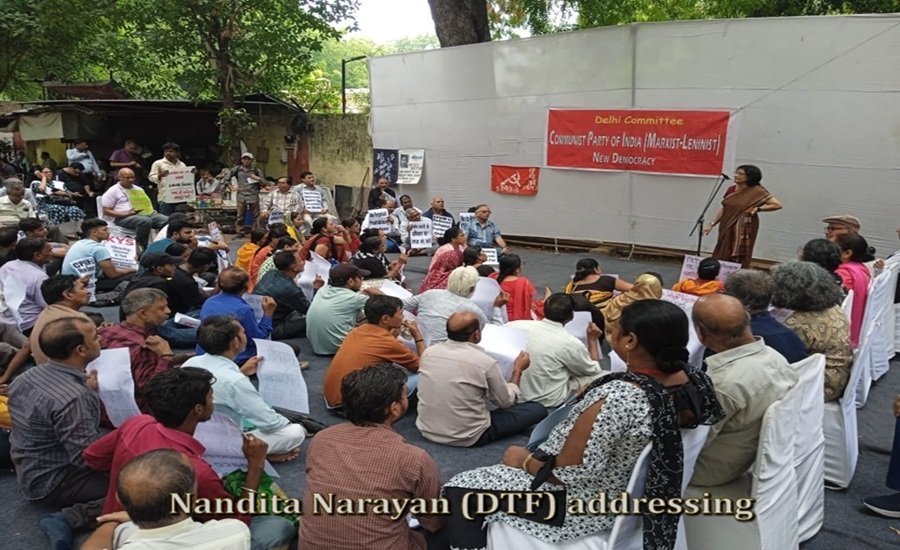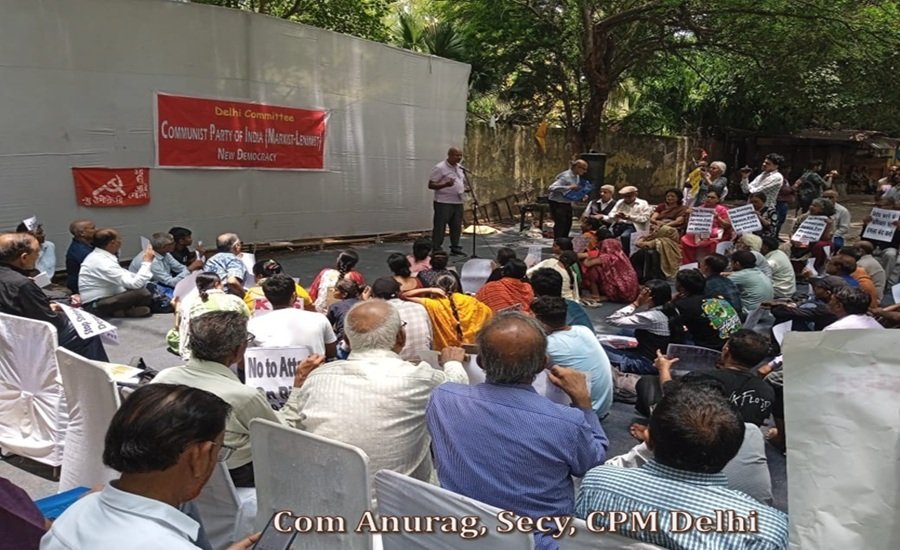The Modi government is accused of enforcing an undeclared emergency and turning the national capital into a ‘no-protest’ zone
NEW DELHI — Several political parties and progressive organisations came together at a joint sit-in protest at the iconic Jantar Mantar here on Tuesday, raising alarm over the systematic erosion of democratic rights and the increasing restrictions on peaceful public assembly in the national capital.
Organised by the Delhi Committee of CPI (ML) New Democracy, the protest saw participation from a wide range of democratic, civil society, and workers’ organisations. Protesters condemned the growing clampdown on dissent, accusing the Narendra Modi government of enforcing an undeclared emergency and turning Delhi into a “no-protest” zone.
Addressing the gathering, CPI (ML) New Democracy’s Delhi spokesperson Comrade Mrigank said, “The country is witnessing conditions worse than the Emergency. The fascist government has captured all democratic institutions and is trying to silence every voice of opposition.”

Speakers from various organisations, including IFTU, CPI(M), PUCL, AIFRTE, AIDWA, KYS, RWPI, Janhastakshep, and PMS Delhi, expressed concern over the denial of basic rights such as freedom of expression and the right to protest. They pointed out that even Jantar Mantar, officially designated as a protest site, has now been turned into a barricaded, heavily monitored space with stringent rules.
Authorities now require a 10-day prior notice for organising any public gathering at Jantar Mantar. Additionally, permanent prohibitory orders under Section 144 are in force throughout the New Delhi district, severely curtailing democratic mobilisations near government offices, Parliament, and state bhavans. Protesters also flagged that industrial areas and workplaces are being brought under similar restrictive regimes, where protest permissions are frequently denied.

During the protest, a joint memorandum addressed to Delhi’s Chief Minister, with copies sent to the Delhi Police Commissioner and the Union Home Minister, was dispatched through police officials. The memorandum demanded the lifting of permanent Section 144 orders in Central Delhi and restoration of the right to protest with simple prior intimation. It also sought unhindered access to designated protest sites like Jantar Mantar and the ability for delegations to submit memoranda in person.
Protesters noted that even delegations from protests are now not permitted to meet officials or submit their memoranda, reflecting a deepening crackdown on democratic procedures.
Concluding the protest, Comrade Mrigank announced that if no positive response is received from the government or police, a coordinated and intensified protest campaign will be launched. He emphasised that the struggle will continue until democratic rights and protest freedoms are restored in Delhi.

